Energy Balance & Body Composition Laboratory
Lab PI: Grant M. Tinsley, Ph.D.

Outline
Overview
The Energy Balance & Body Composition Laboratory is an active research laboratory in the Department of Kinesiology & Sport Management at Texas Tech University. The major research interests of our team are the critical evaluation of body composition assessment techniques, energy balance manipulations ranging from intermittent fasting to overfeeding, and sports nutrition strategies to improve performance and body composition.

Current Lab Members
Doctoral Students
Christine Florez, M.S.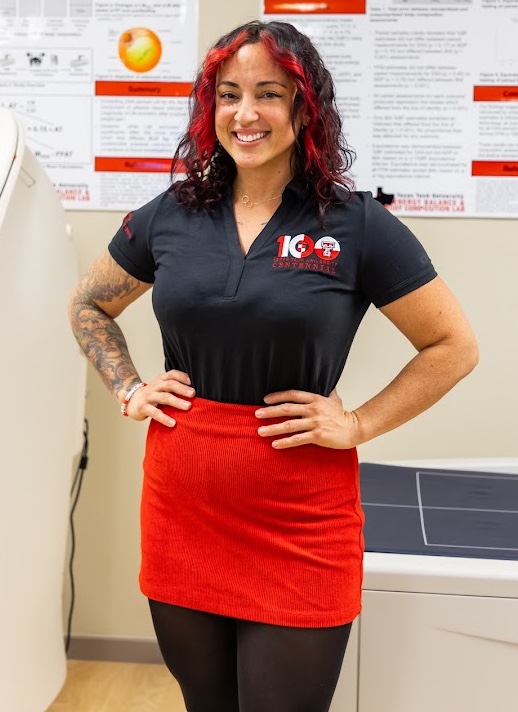
- Degree program: Ph.D. in Exercise Physiology
- Educational background
- B.S. in Exercise Physiology, University of Mary Hardin-Baylor, Belton, TX
- M.S. in in Exercise Physiology, University of Mary Hardin-Baylor, Belton, TX
- Career goals: Continue my research with an emphasis on women. My goal is to encourage women to engage in healthy physical activity for the purposes of longevity, specifically through resistance training and nutritional intervention.
- Hometown: McKinney, TX
- Hobbies: Spending time with my daughter (Leia), powerlifting, performing locally as an aerialist (think Cirque Du Soleil with less talent—that is me), collecting comic books, drawing, and traveling.
Carina Velasquez, M.S.
- Degree program: Ph.D. in Exercise Physiology
- Educational background
- B.S. in Kinesiology, University of Alabama, Tuscaloosa, AL
- M.S. in Kinesiology, Texas Tech University, Lubbock, TX
- Career goals: Continue doing research with a focus on body composition in multi-ethnic groups and tactical populations.
- Hometown: Lubbock, TX
- Hobbies: Cycling, Reading, Watching Sports (especially the Philadelphia Eagles and the Alabama Crimson Tide), and hanging out with my dogs.
Master's Degree Students
Ainsley Way, B.S.

- Degree program: M.S. in Kinesiology (Human Performance Track)
-
Educational background:
-
B.S. in Exercise Science, University of South Carolina, Columbia, SC
-
- Career goals: Continue research in the resistance training field, along with one day hopefully opening my own gym.
- Hometown: Brookfield, MA
- Hobbies: lifting, running, baking sourdough bread + treats, and reading
Madison Sullivan, B.S.
- Degree program: M.S. in Kinesiology (Human Performance Track)
- Educational Background
- B.S. in Biology, Villanova University, Villanova, PA
- Career goals: Strength and Conditioning or Sports Performance Coaching
- Hometown: Irmo, South Carolina
- Hobbies: Weightlifting, long walks, occasional cycling classes, rewatching the same
Adam Sandlermovies over and over again, listening to music ~especially The Weeknd
Undergraduate Students
Julia Whitson 
- Degree program: B.S. Cell and Molecular Biology, minors in Chemistry, Theatre, & Kinesiology
- Career goals: medical doctor, with interest in primary care or emergency medicine
- Hometown: Yuma, Arizona
- Hobbies: training for strongman competitions, volunteering at UMC, nerding out about Lord of the Rings, cooking up new recipes, participating in devised theatre, and taking care of her plants!
John Alexander
- Degree program: BBA in Accounting, minors in Biology, Chemistry, and Health Professions (Pre-Med Track)
- Career goals: Matriculate to TTUHSC School of Medicine through the UMSI program and become a licensed physician, with an interest in primary care, cardiology, and anesthesiology
- Hometown: Lufkin, TX
- Hobbies: Weightlifting, playing pickleball, cooking, and playing video games
Adhi Malladi
- Degree program: B.S. in Kinesiology
- TrUE Scholar
- Career goals: Medical Doctor, with interest in Physical Medicine/Ortho
- Hometown: Flower Mound, TX
- Hobbies: Watching Sports, Playing Sports, Watching Movies, Working Out
Recent Projects
- Evaluation of Accessible Technologies to Assess Body Composition, Body Water, and
Metabolism in Muscular Resistance-trained Adults (2024 - 2025). Dissertation project for Christian Rodriguez.
- Manuscripts in preparation.
- RMR Ratio as an Indicator of Energetic Status in Active Women Using the Combined Oral
Contraceptive Pill (2023 - 2024). Dissertation project for Madelin Siedler.
- Manuscripts in preparation.
- Influence of Structured Medium- and Long-Chain Triglycerides on Muscular Recovery Following Damaging Resistance Exercise (2023 - 2024). Funded by Bunge Loders Croklaan.
- Smartphone-based Digital Anthropometry and Body Composition Estimation using 3-Dimensional Optical Imaging (2023 - 2024). Funded by Prism Labs.
- Chronic Thermogenic Dietary Supplement Consumption: Effects on Body Composition, Anthropometrics, Metabolism, and Subjective Variables (2022 - 2024). Funded by EHP Labs.
- Digital Anthropometry and Body Composition Estimation Using a Generation 2 Prototype 3-Dimensional Optical Scanner (2022 - 2023). Funded by Prism Labs.
- Evaluation of Novel Beverage Formulations for Hydration Enhancement in Humans (2020 - 2022). Funded by 8 POiNT, LLC.
- Quantifying the Relationship Between Anthropometry, Body Composition, and Performance
on the Army Combat Fitness Test (2021 - 2022). Funded by the Texas chapter of the American College of Sports Medicine. Dissertation
project for Patrick Harty.
- Manuscripts in preparation.
- Metabolic Effects of a Novel Ready-to-drink Thermogenic Beverage (2021 - 2022). Funded by EHP Labs.
- The Effect of Breakfast Consumption on Afternoon Resistance Training Performance (2021 - 2022). Dissertation project of Matthew Stratton.
- Validity and Reliability of Commercially Available Bioelectrical Impedance Analysis Devices (2021 - 2022).
- Pharmacokinetic Analysis of Nutrient Absorption from a Novel Liposomal Multivitamin/mineral
Formulation (2021 - 2022). Funded by Nutraceutical International Corporation.
- Influence of Caffeinated and Non-caffeinated Pre-workout Supplements on Resistance Exercise Performance (2021). Funded by Legion Athletics, Inc.
- Reliability of Body Composition Assessment Methods (2020).
- Manuscript in preparation.
- Adaptations to Overfeeding Plus Resistance Training (2019)
- Publication: Tracking changes in body composition: comparison of methods and influence of pre-assessment standardisation
- Publication: Predicting Adaptations to Resistance Training Plus Overfeeding Using Bayesian Regression: A Preliminary Investigation
- Publication: Comparison of Indirect Calorimetry and Common Prediction Equations for Evaluating Changes in Resting Metabolic Rate Induced by Resistance Training and a Hypercaloric Diet.
- Publication: A Field-based Three-Compartment Model Derived from Ultrasonography and Bioimpedance for Estimating Body Composition Changes
- Publication: Longitudinal agreement of four bioimpedance analyzers for detecting changes in raw bioimpedance during purposeful weight gain with resistance training
- Influence of a Commercial Energy Drink on Metabolism and Exercise Performance (2019-2020). Funded by Vital Pharmaceuticals, Inc.
- Influence of Acute Water Ingestion and Prolonged Standing on Raw Bioimpedance and Subsequent Body Fluid and Composition Estimates. Supported by BioSpace, Inc. (DBA InBody).
- Critical Evaluation of Body Composition Assessment Methods (2018-2019). Supported by SizeStream, LLC and Naked Labs, LLC.
- Publication: 3-Dimensional optical scanning for body composition assessment: A 4-component model comparison of four commercially available scanners
- Publication: Five-component model validation of reference, laboratory and field methods of body composition assessment
- Publication: Digital anthropometry via three-dimensional optical scanning: evaluation of four commercially available systems
- Publication: Explaining Discrepancies Between Total and Segmental DXA and BIA Body Composition Estimates Using Bayesian Regression
- Publication: Novel body fat estimation using machine learning and 3-dimensional optical imaging.
- Publication: Segmental body composition evaluation by bioelectrical impedance analysis and dual-energy X-ray absorptiometry: Quantifying agreement between methods
- Publication: Agreement of bioelectrical resistance, reactance, and phase angle values from supine and standing bioimpedance analyzers
- Time-Restricted Feeding Plus Resistance Training in Active Females (2018)
- Publication: Time-restricted feeding plus resistance training in active females: a randomized trial
- Publication: Body fat gain and loss differentially influence validity of dual-energy x-ray absorptiometry and multifrequency bioelectrical impedance analysis during simultaneous fat-free mass accretion
- Publication: Changes in total and segmental bioelectrical resistance are correlated with whole-body and segmental changes in lean soft tissue following a resistance training intervention
- Publication: Cross-sectional and longitudinal agreement between two multifrequency bioimpedance devices for resistance, reactance, and phase angle values.
- Body Composition Assessment in Physique Athletes (2017)
- Publication: Fat-free Mass Characteristics of Muscular Physique Athletes
- Publication: Body Composition Assessment in Male and Female Bodybuilders: A 4-Compartment Model Comparison of Dual-Energy X-Ray Absorptiometry and Impedance-Based Devices.
- Publication: Resting metabolic rate in muscular physique athletes: validity of existing methods and development of new prediction equations.
- Publication: Precision of Dual-Energy X-Ray Absorptiometry Reflection Scans in Muscular Athletes
- Publication: Changes in Body Composition and Neuromuscular Performance Through Preparation, 2 Competitions, and a Recovery Period in an Experienced Female Physique Athlete
- Responses to 24-hour Fasting with β-Hydroxy β-methylbutyrate Supplementation (2017)
- Effects of Commercially Available Pre-Workout Supplements on Exercise Performance (2016)
Laboratory Capabilities
The primary capabilities of the laboratory are advanced body composition assessment and metabolic assessments. Additional facilities for evaluating muscular performance and implementing training programs are located in adjacent laboratories.
The specific capabilities of the laboratory are:
- Producing molecular-level multi-compartment model body composition models (see figure below).
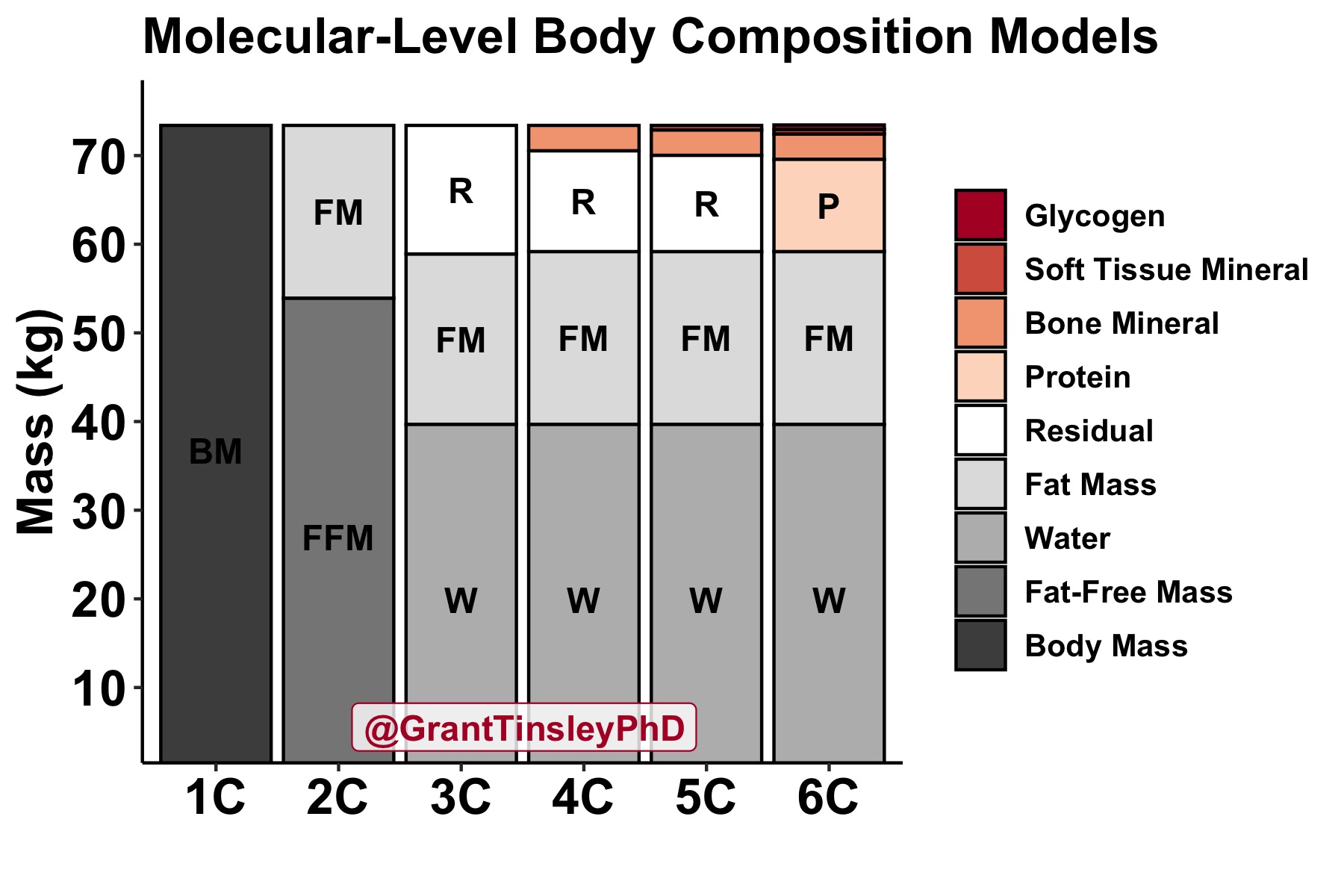
- Total and segmental body composition analysis
- Lean soft tissue or fat-free mass
- Fat mass
- Bone mineral content
- Muscle cross-sectional area, thickness, and quality
- Visceral fat estimation
- Fluid analysis
- Total body water
- Intracellular water
- Extracellular water
- Automated anthropometric analysis
- Total and segmental volumes
- Circumferences and lengths of virtually any body segment
- Bioelectrical parameter analysis
- Resistance, reactance, and impedance
- Phase angle
- Resting metabolic rate assessment
- Substrate oxidation assessment
Equipment
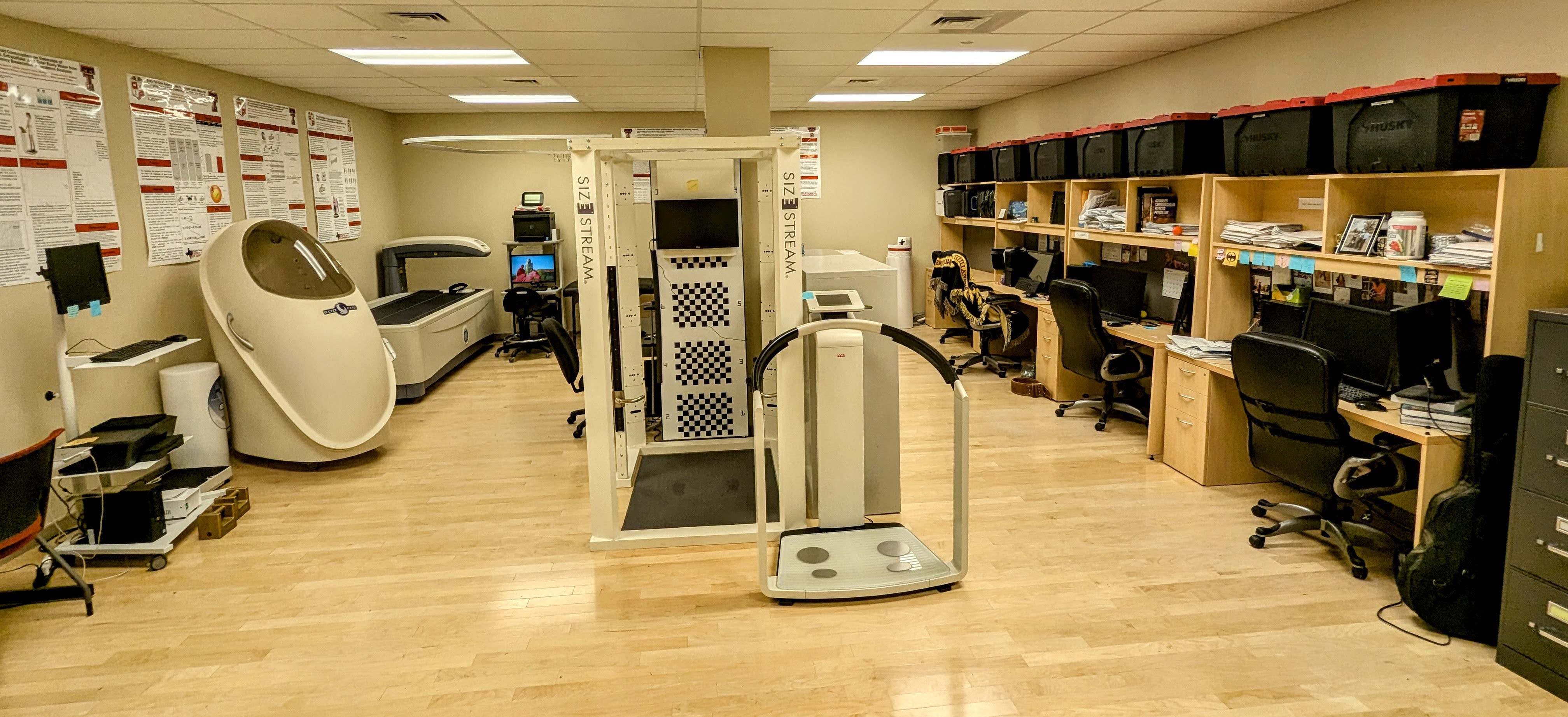
- Dual-energy x-ray absorptiometry (DXA)
- GE Lunar Prodigy
- GE iDXA (located in adjacent shared laboratory)
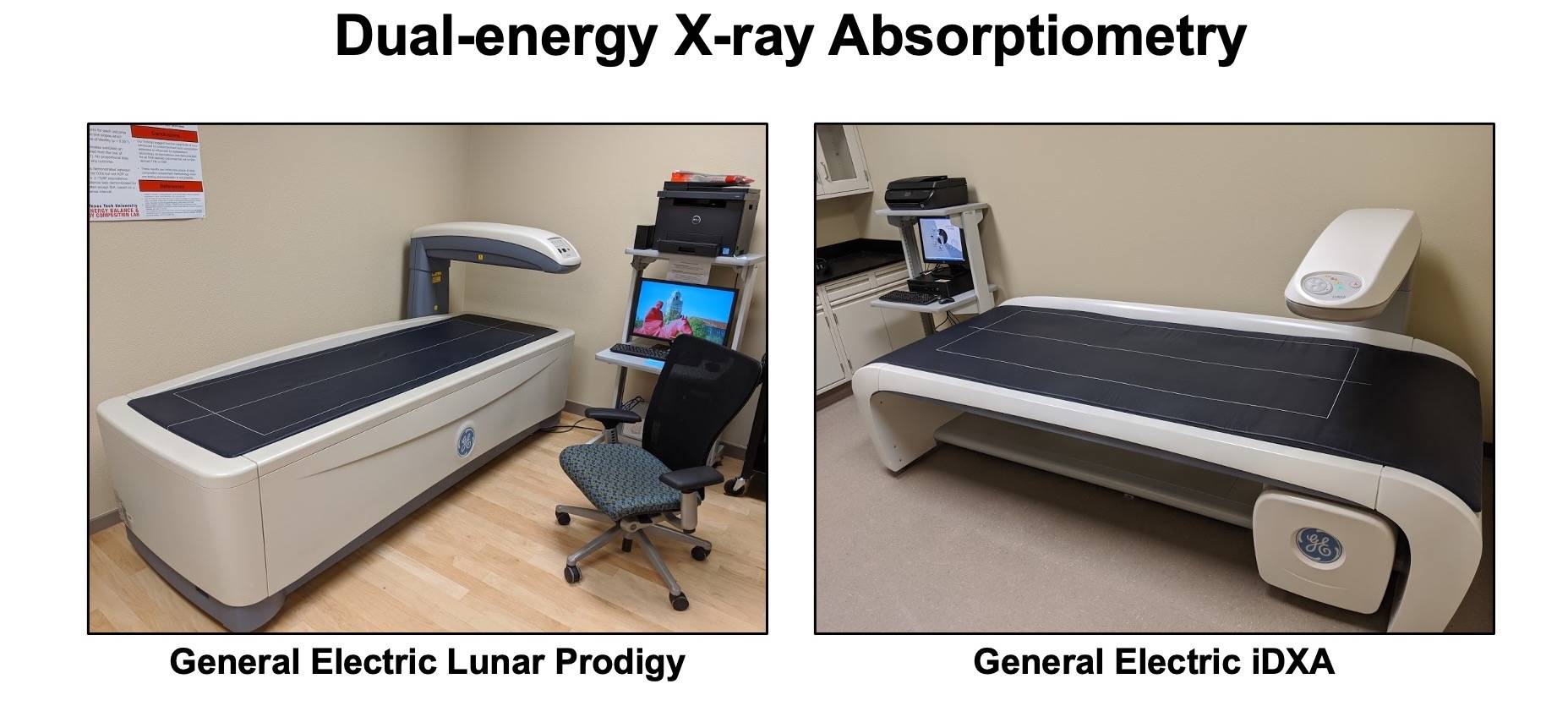
- Air displacement plethysmography
- Cosmed Bod Pod
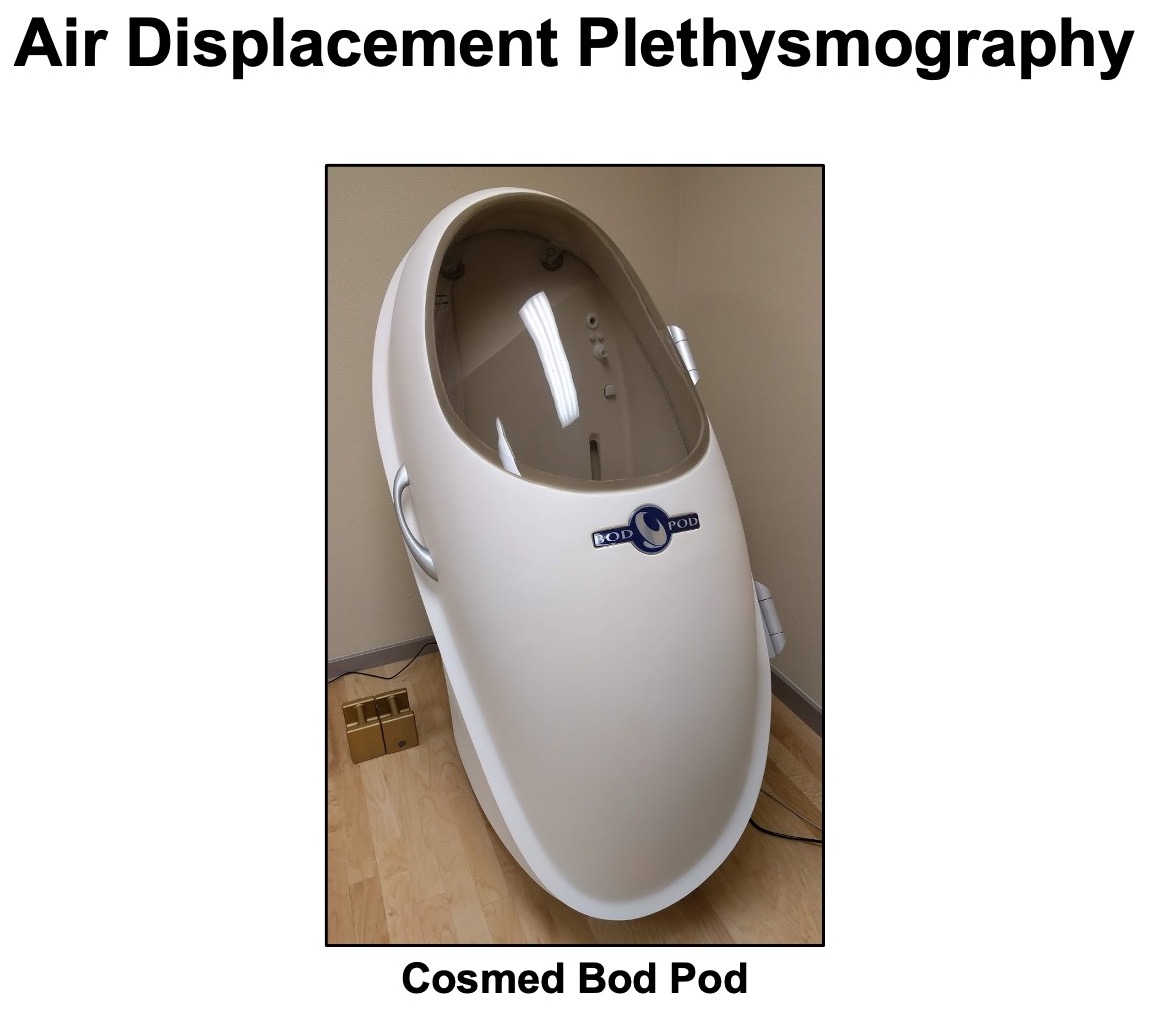
- Bioimpedance spectroscopy (BIS)
- Impedimed SFB7
- Multi-frequency bioelectrical impedance analysis (MFBIA) with segmental body composition
capabilities
- Seca mBCA 514/515
- Single-frequency bioelectrical impedance analysis (SFBIA) with segmental body composition
capabilities
- RJL Quantum V
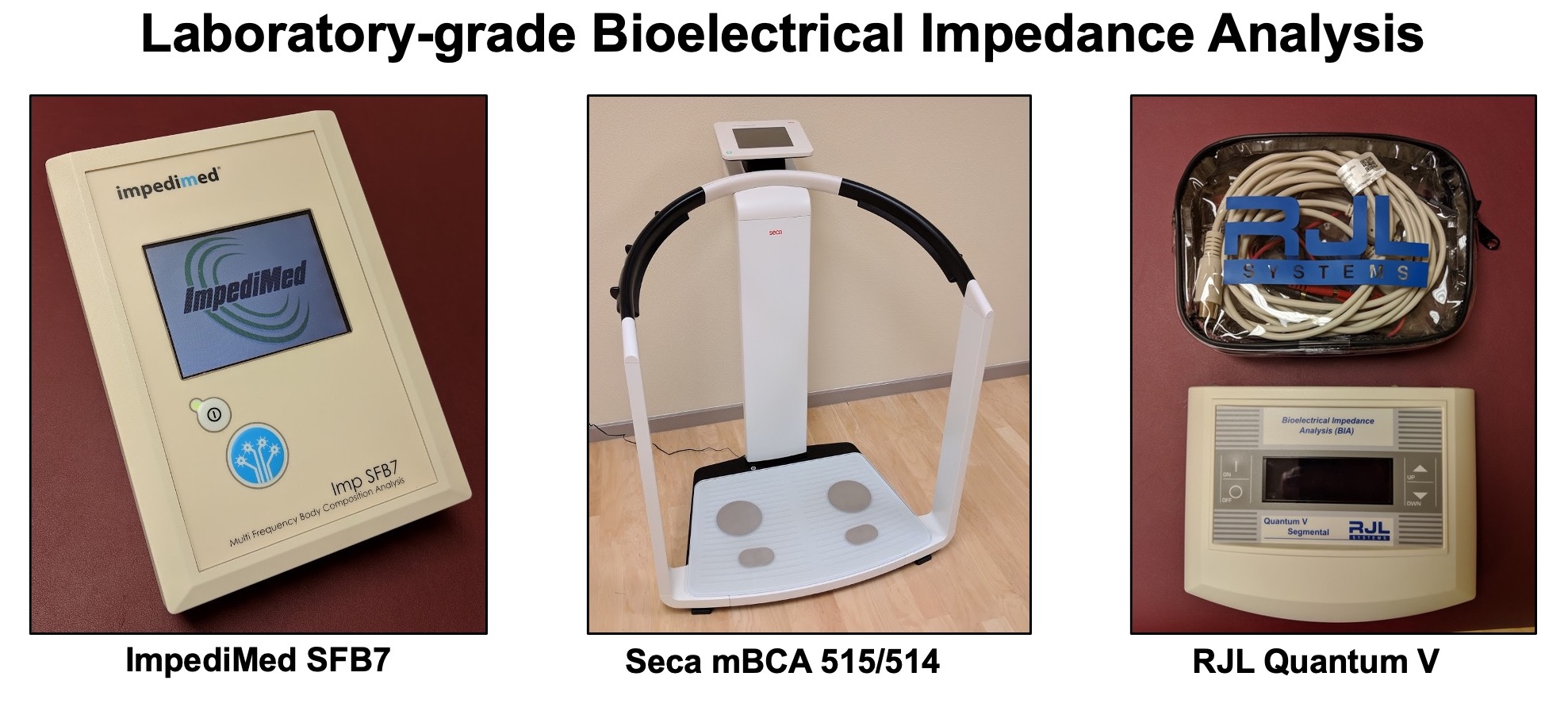
- 3-dimensional optical scanners
- SizeStream SS20
- Fit3D ProScanner
- Styku S100
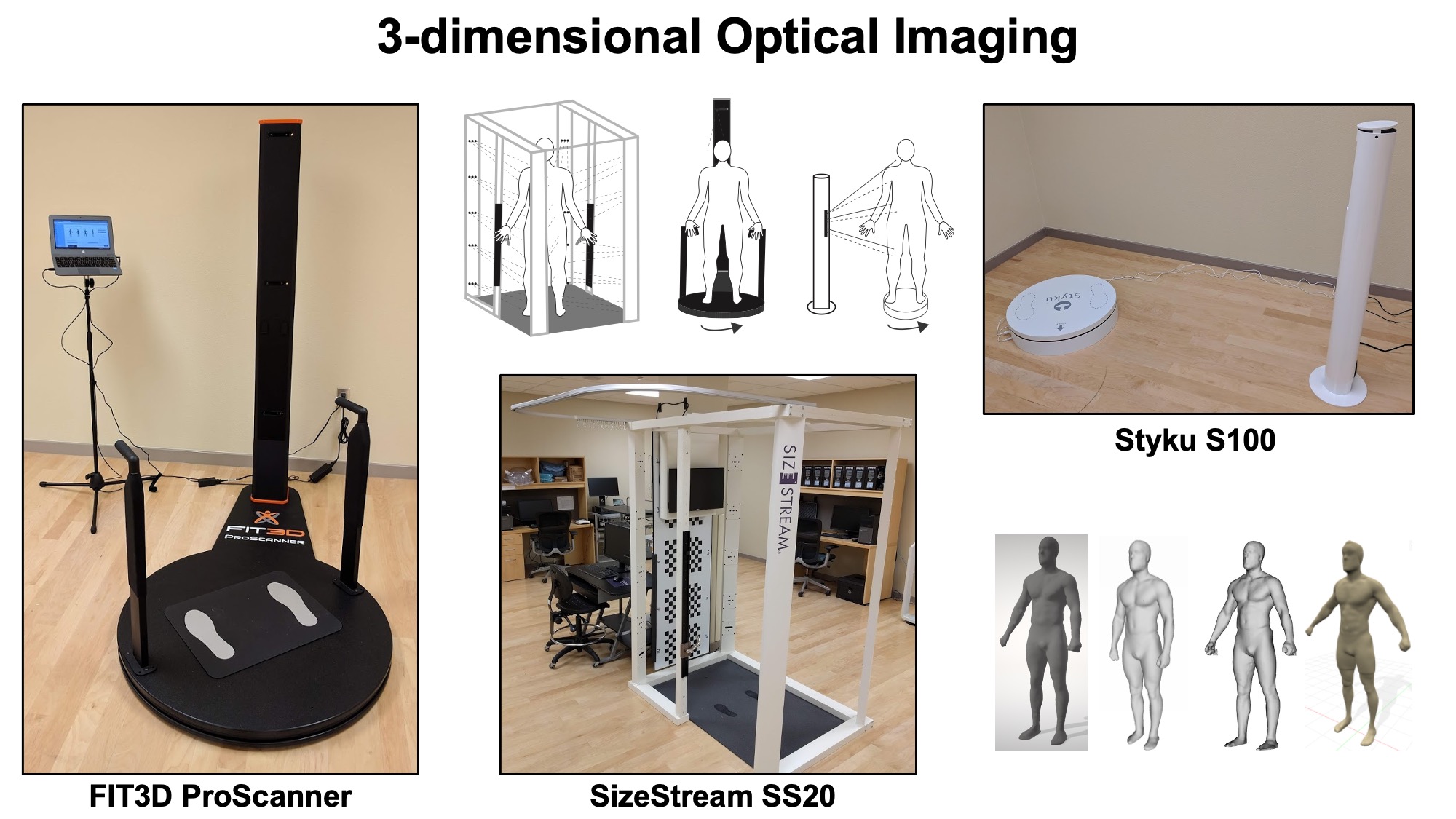
- Consumer-grade bioelectrical impedance analysis scales (for evaluation)
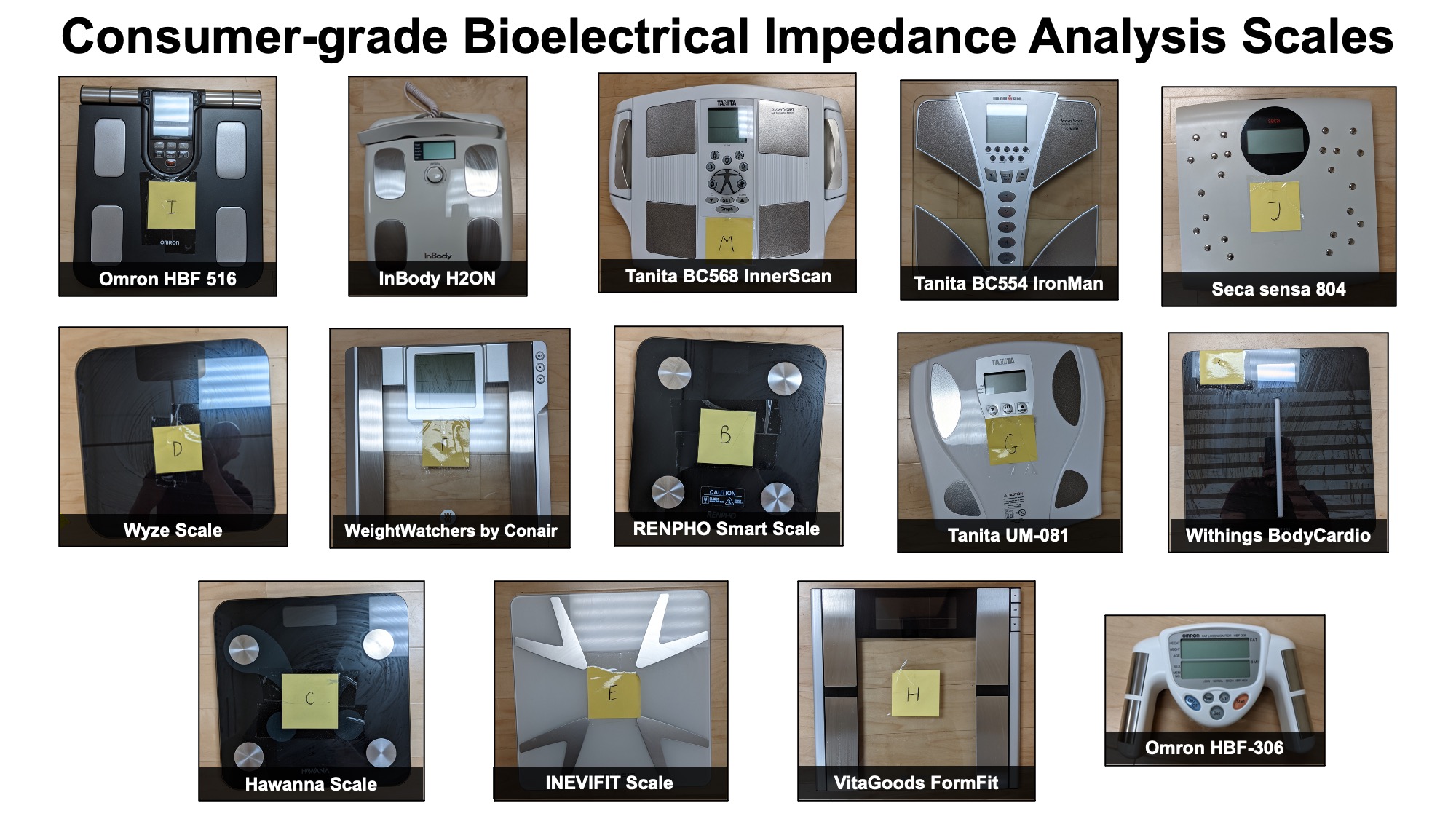
- Ultrasonography
- Electrical impedance myography (EIM)
- Skulpt Chisel
- Indirect calorimetry
- ParvoMedics TrueOne 2400
- Cosmed FitMate WM
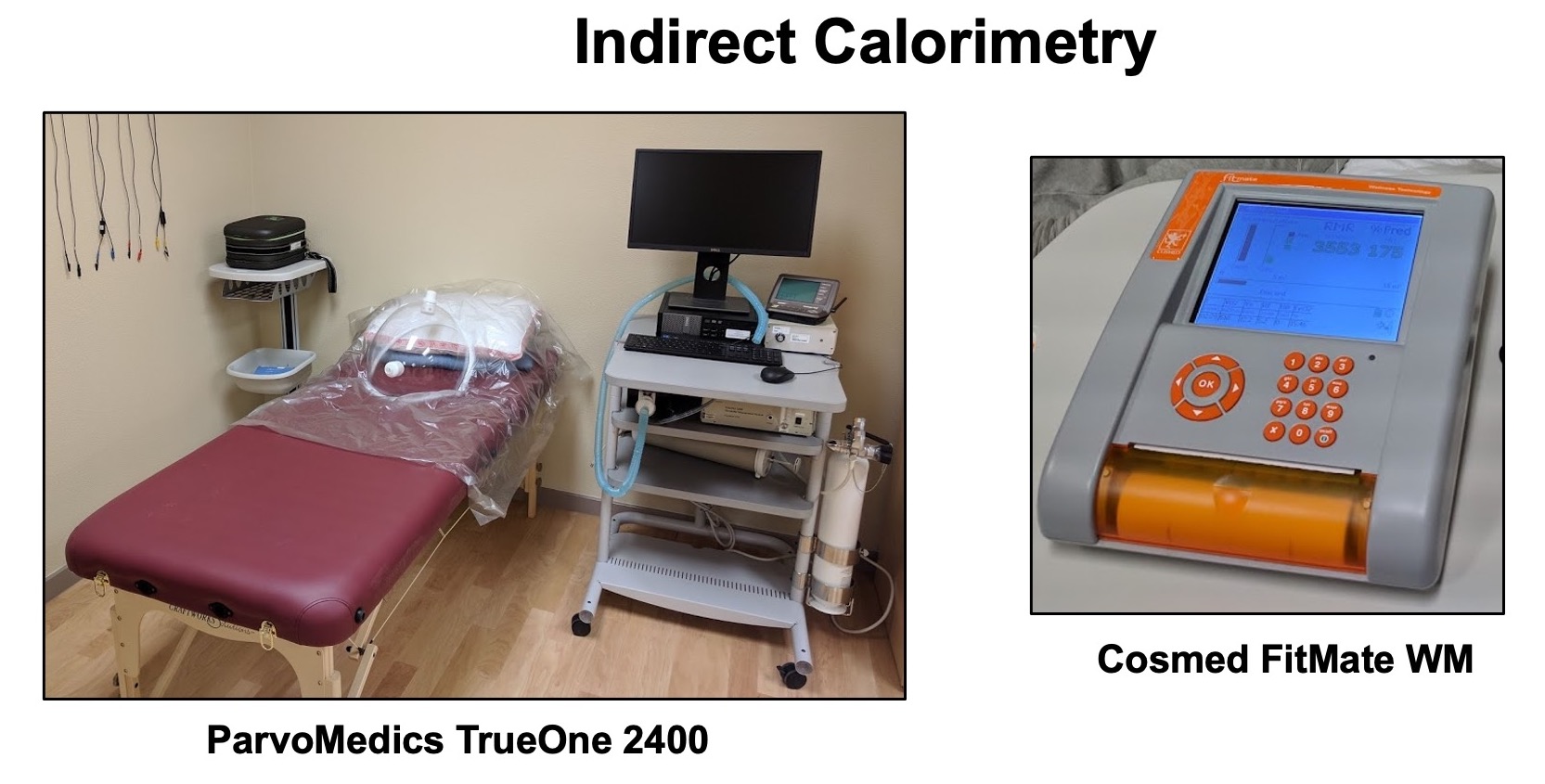
- Body mass scales
- Calibrated scale (modified Tanita, Corp. Model BWB-627-A)
- Standard Seca body mass scale with stadiometer
- Ten computer workstations for data processing/analysis
- Padded tables for supine assessments
Department of Kinesiology & Sport Management
-
Address
Box 43011, Texas Tech University, 2500 Broadway, Lubbock, TX 79409 -
Phone
806.742.3371
